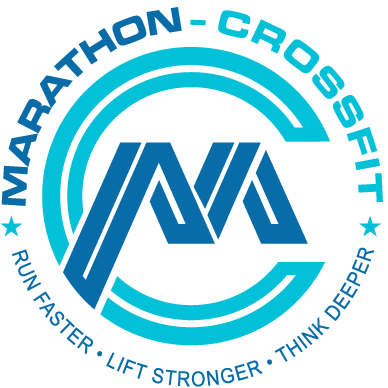How to Eat and Sleep Correctly for Maximum Recovery
A well-rounded exercise regimen contains exercises that target cardiovascular and musculoskeletal systems of the body.
Stretching, aerobic activity, and strength training all have a place in a well-planned exercise routine. It's detrimental to only consider the exercises when designing a workout plan. Without preparation and recovery, exercising can cause injury to the muscles as well as other systems of the body.
Most people understand the importance of warming up before beginning an exercise routine. The importance of consistent training is also well understood.
The part of an exercise program that often isn't readily understood... is recovery. Recovery goes beyond the cool down period of the workout.
What is Recovery?
Recovery is the period of time you give your body to rest, repair, and strengthen before your next workout session. Any exercise regimen places a certain amount of stress on your body. The recovery period allows your body to rebuild energy, repair the tissues affected by the workout, and change in relation to the stress the exercise routine placed on it.
There’s a short-term recovery and long-term recovery period:
Short-term recovery begins with the cool down phase of the workout and happens within a matter of hours after a workout or an athletic competition.
Long-term recovery occurs over longer lengths of time between workouts or competitions. Long-term recovery times can be days or even weeks that are scheduled into an exercise or athletic training schedule.
The Importance of Nutrition to Recovery
After a workout, thoughts often turn to food. After all, you've just burned calories, and you probably feel depleted after sweating throughout your exercise routine.
For the maximum benefit from your workout, choose your foods wisely. Filling your body with empty calories will negate the benefits of the work you just did. Instead, choose nutrient dense, healthy foods to refuel your body.
Protein is needed to keep blood sugar levels stabilized after a workout, and it also helps you to have energy to sustain a workout. For recovery, you want to eat foods that will help to boost levels of melatonin, serotonin, and growth hormone in your body. You also want glycogen levels replenished and cortisol levels decreased which means you need to consume some carbohydrates.
Protein with Omega-3 fatty acids not only helps to repair muscles, but also can increase serotonin levels. Omega-3s also can reduce inflammation and cortisol levels.
When choosing carbohydrates, choose whole grains, fruits, and vegetables like sweet potatoes that won't cause a blood sugar and insulin roller coaster like refined sugars or white rice, bread, and potatoes can. Oatmeal and brown rice are good carbohydrate choices for maintaining blood sugar levels. Oatmeal is also good for muscles.
Good protein choices include lentils, eggs, nut butters, and lean meats. Nuts and seeds are good sources for Omega-3s. Fruits and berries are good additions to a protein smoothie to get carbs and protein in one snack. Bananas are good choices for smoothies or as a snack with peanut butter because they are rich in potassium, which helps to prevent muscle cramping.
To help with another element of recovery, sleep, choose foods that help your body produce tryptophan, melatonin, and serotonin. Those foods include berries, cherries, lamb, seafood, prawns, seeds, almonds, walnuts, green vegetables, and sweet potatoes.
As with during the workout phase, your body needs to be well hydrated during the recovery phase. Staying well hydrated helps your cardiovascular system perform correctly, and it helps with cellular repair and growth.
The Importance of Sleep to Recovery
Sleep helps the body recover and the brain to process information. Inadequate sleep has been linked to decreased performance as well as to issues like obesity, cancer, and dementia.
Sleep deprivation results in less control over our body which can lead to injury. Lack of sleep slows our ability to react in both mental and physical challenges.
It's recommended that adults get a minimum of 7 to 9 hours of sleep each night, but most people don't get near that much. Some of us think that functioning on less sleep is a challenge to be conquered! Don’t make this mistake.
Purposely choosing to get inadequate sleep routinely can be detrimental to both a workout and overall health. Taking the time to rest at night makes us more alert throughout the day and gives our body the opportunity to more adequately repair damage created by a workout.
Sleep allows the body adequate time to produce the hormones we need to function on a daily basis. Some of these hormones are integral parts of the repair and recovery process.
Along with getting a good night's sleep, taking a power nap immediately after a workout can help with the short-term recovery process. Getting a 45 minute nap can help to increase your ability to stay alert and to stay motivated to continue to workout.
Final Thoughts
Signs of skipping proper recovery include lack of energy, difficulty breathing, having no desire to workout, memory loss, feeling cold all the time, and having no sex drive.
Developing a good nutrition plan with the right balance of nutrients is a step toward appropriate recovery.
Combine nutrition with appropriate sleep, and your road to adequate recovery is a more clear route.
Don't skip the recovery part of your exercise regimen. Taking the time to recover gives you a better chance of getting the results you want from your workout routine.

Emily Palmer is a caffeinated blogger who loves talking Decorating, Travel, Yoga, Parenting, Self Development, and more. She can be reached at twitter if you can’t find her at the local café.


